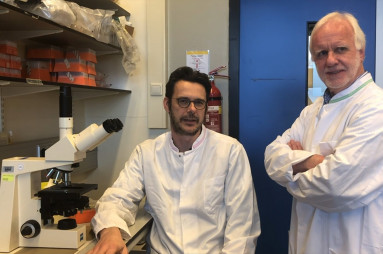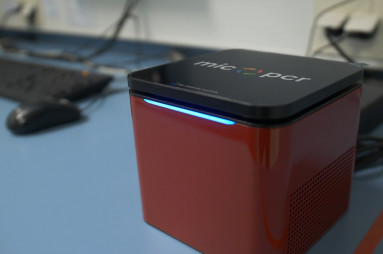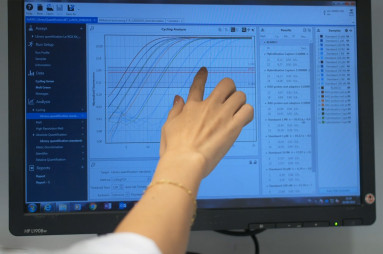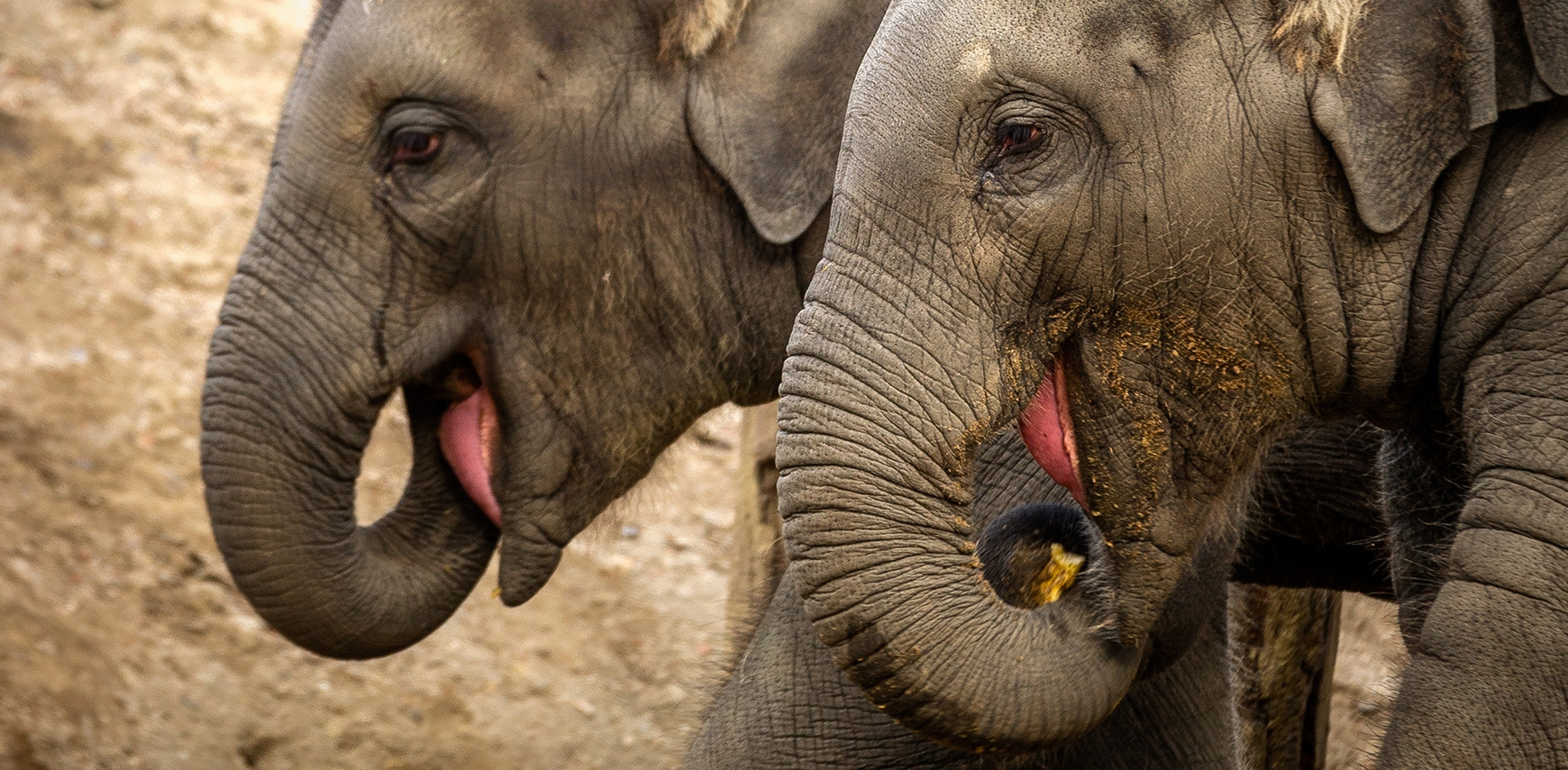Halt herpes
Herpes occurs in elephants both in the wild and in zoos. Its possible treatment has so far remained a mystery. The virus is latent in the blood of elephants. Young animals, up to around eight years old, are particularly and continuously at risk. A flare-up is usually acute and life threatening. Developing a vaccine is therefore crucial and would make a world of difference to elephants, both in zoos and in the wild. That is why Antwerp ZOO and Planckendael ZOO sought to raise essential funds via crowdfunding, generating some 75,000 euros, to enable the initiation of a new scientific research project to develop a vaccine at Utrecht University in the Netherlands. Our scientists also monitor our young elephants to collect information that could help identify what triggers the virus. Innovative genetic analysis of blood samples in the lab at Antwerp ZOO will make potential flare-ups more predictable, and also enable other zoos to benefit from the expertise of the scientists at Antwerp ZOO and Planckendael ZOO.
BACKGROUND
Planckendael ZOO was first confronted with a fatal outbreak of herpes in the spring of 2018. One of the elephants in the herd had unexpectedly succumbed to the virus. ("Read the article "When it's to late"...") “That had a huge impact”, explains Linda Van Elsacker, Zoological Director of Antwerp ZOO & Planckendael ZOO. “We were so taken aback by the speed of it all that we decided to explore what measures could be taken to ensure that any future cases would be detected sooner. Or what treatment could be given.”
WHAT WILL THE STUDY INVOLVE PRECISELY?
Current insight into the herpes virus is practically non-existent, worldwide, which is why we feel this study is so important. Thanks to the funds raised following the death of an elephant at Planckendael ZOO, a research project has been set up at the Faculty of Veterinary Medicine at Utrecht University in the Netherlands. The research project examines ways of combating the virus and specifically seeks to develop a vaccine. Professor Dr Xander de Haan, virologist at Utrecht University: "We are very concerned about the fate of elephants and would like to develop a vaccine against the virus. We aim to do that by imitating the 'keys’ the virus uses to enter a cell, and to use them as a vaccine." Researchers can also use these keys to identify exactly where the virus occurs in the animal's body. “Knowing how the disease occurs would enable us to develop a treatment”, adds Professor Dr Victor Rutten, immunologist at Utrecht University. "That will need extra funding, but the project is extremely important."

We aim to imitate the 'keys’ the virus uses to enter a cell, and to use them as a vaccine.
Extensive scientific and laboratory research is also conducted at Antwerp ZOO & Planckendael ZOO. Besides relevant knowledge and expertise the researchers of the Centre for Research and Conservation (CRC) at Antwerp ZOO and Planckendael ZOO also have specialised lab equipment (QPCR) at their disposal. "It enables us to monitor the condition of the calves”, Van Elsacker continues. "And not only that of our own calves, we also have the potential to help other zoos in the same way.” “A QPCR machine enables us to study DNA”, explains Philippe Helsen, conservation geneticist at Antwerp ZOO and Planckendael ZOO. "Much more accurately than we used to be able to. We can measure concentrations required for this study. We know that herpes is often latent in elephant blood, in small quantities, and that at some point in time a flare-up can occur. Having such a sensitive piece of equipment will enable us to detect that rapid increase much more accurately." The equipment has been available for some time but had not been used to trace herpes until recently. “No two pieces of DNA, no two viruses are the same and new methods have to be developed to trace specific viruses. Until recently it was extremely difficult to trace herpes in elephants because it is such a specific virus. We now know have the knowledge and the ability to do just that."

Until recently tracing herpes was extremely difficult. We now have the knowledge and the ability to screen elephant blood.
WHAT IMPACT DOES THE STUDY HAVE?
The quest at Utrecht University could have groundbreaking effect. Developing a vaccine would make a world of difference, both in zoos and in the wild. Such a study obviously takes years, which is why it is important, in the meantime, to search for signals that could predict an outbreak of herpes. As there are several different types of herpes, some fatal, some less aggressive, the CRC researchers seek to trace the various viruses preventively by analysing elephant blood on a regular basis. "In-house screening enables us to respond more promptly. Samples no longer have to be sent to external laboratories." So blood samples are regularly taken from elephants and then analysed in the lab at Antwerp ZOO. Doing this over a long period of time will enable us to monitor how the virus evolves in a specific elephant. "Besides enabling us to trace the virus more quickly, we hope that this information will also enable us to identify the parameters that trigger sudden herpes flare-ups. By systematically reporting abnormal blood levels flare-ups, which until recently were acute, become more predictable. The data we collect here are vital to the identification of the triggers that cause acute herpes flare-ups and that information is much needed, worldwide, to enable us to remedy it. In the future other zoos will also be able to draw on the expertise of scientists at Antwerp ZOO and Planckendael ZOO to identify the type of virus.
A vaccine would make a world of difference but in the meantime we are searching for signals that could predict an acute herpes outbreak. That information is needed worldwide.


